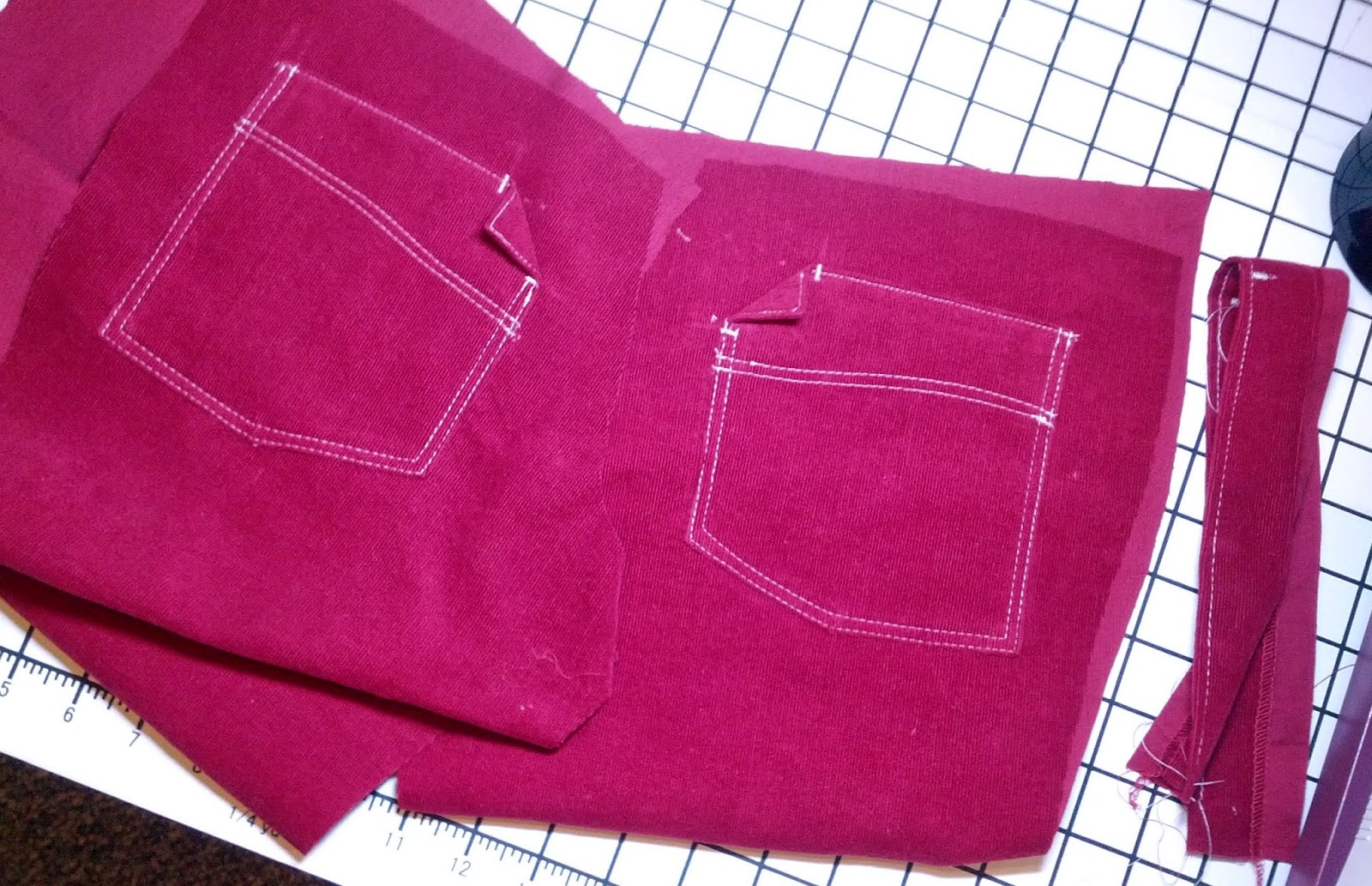Typical instructions for pant/jean construction have you start with pockets. These tend for me to be some of the trickiest - especially when doing clever and interesting pockets with lots of top stitching. They really show off your sewing skills (or lack thereof).
These back pockets took a bit of patience. The top of the pattern piece is a curved line which becomes (when sewn and folded down) the guide mark to stitch the wavy/curved top stitching that goes diagonally across the pocket.
The top of the pocket is edge stitched (stitched very close to the edge) prior to attaching it to the pants back. This can be tricking as some machines like to grab and pull the fabric down in the feed dogs.
To help make this go more smoothly, I use a "hump-jumper" which is simply a piece of fabric of like-thickness that I place under my machine foot and behind the starting point of where I want to stitch. This keeps the foot level and keeps the fabric from getting pulled down into the bobbin and jammed. You can see the strip of fabric I used in the picture below.
My next top-stitching best friend is my bi-level top stitch foot. It has a groove underneath the foot that fits the edge of the fabric and guides it for a nice straight line. I move my needle position to place the stitching exactly where I want it. This is great for double stitching. I set my first row of stitching needle position at 2mm and my second at 6mm. A picture of the bi-level top stitch foot is below.
The folded corners will have a jean stud inserted - I'll put that process in the post when I do the fly and the jean button.
Also, I have a bar-tack stitch on my machine which I used to make the bar-tacks on either side of the folded corner. You could easily do this adjusting the zig stitch on your machine.
Next up - front pockets.
Make something beautiful!
Jen






